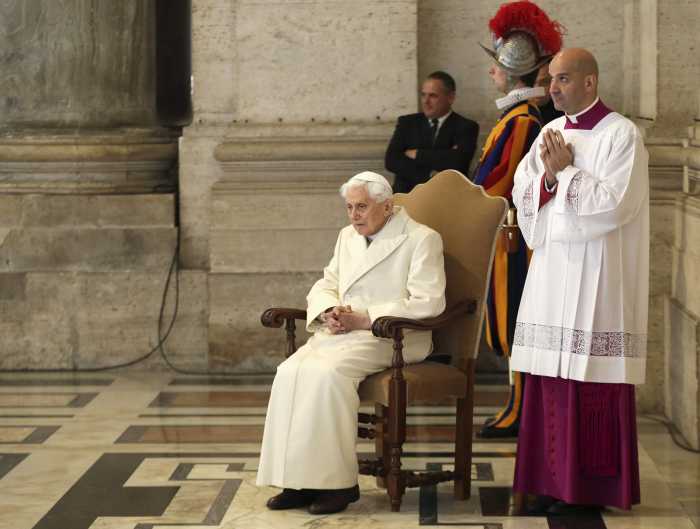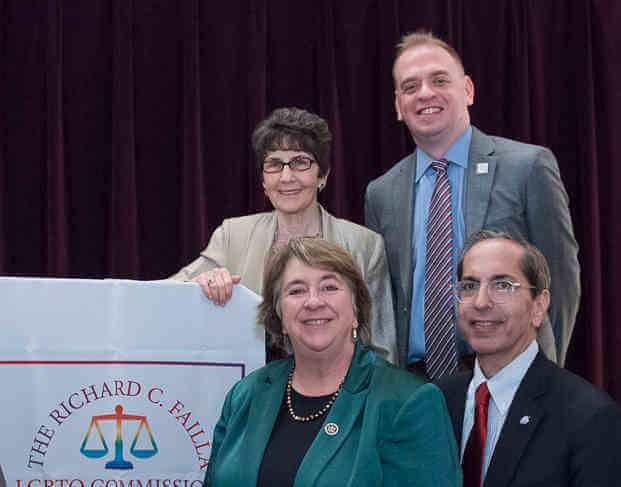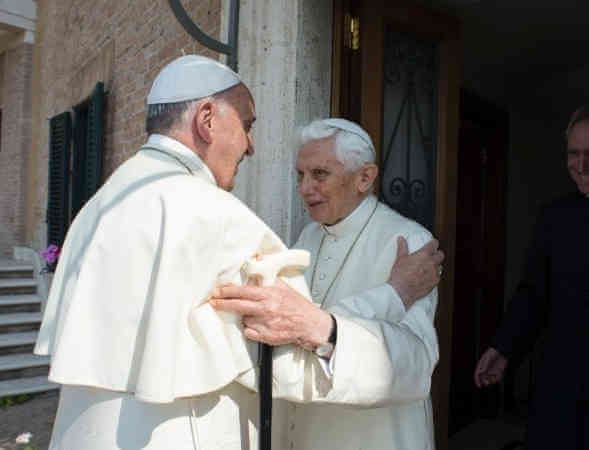The Vatican, over the past week, moved to clarify comments by Pope Francis in which he endorsed civil union laws and appeared to defend the right of same-sex couples to form families.
According to Reuters, the Vatican Secretariat of State, in an “explanatory note” to its ambassadors around the world, argued that Francis’ comments, which appeared in the documentary “Francesco” that premiered at a Rome film festival on October 21, were taken out of context and did not signal a change in Church doctrine on gay and lesbian people or on marriage equality.
That note from the Vatican was then shared with bishops, and was first reported by Austen Ivereigh, a papal biographer. Since then, the Vatican ambassador to Mexico has shared it on Facebook, and the Vatican verified its authenticity on November 2.
Nothing to see here, Secretariat of State argues, saying no change in view of homosexuality
The Vatican asserts that Francis’ comments in the film — which director Evgeny Afineevsky found in unaired footage from a 2019 interview with the pope by Mexico’s Televisa — spliced together responses to two different questions and omitted critical portions of his answers.
According to the Catholic News Agency, Francis, in the film, said, ““Homosexuals have a right to be a part of the family. They’re children of God and have a right to a family. Nobody should be thrown out, or be made miserable because of it.”
The Vatican’s explanatory note stated that Francis was talking about the rights of gay and lesbian people to be accepted by their own families, not to form families – perhaps with children — themselves.
The note also pointed to the omission of a key phrase in Francis’ comments to Televisa — that “it is an incongruence to speak of homosexual marriage.”
“It is clear that Pope Francis was referring to certain state provisions and certainly not the doctrine of the Church, which he has reaffirmed numerous times over the years,” read the note from the Vatican Secretariat of State.
To a certain degree, the Vatican exaggerated the degree to which Francis’ comments might have been misconstrued. Nobody thought that the pope had endorsed marriage equality in his statement — and reporting in October also noted that he had signaled support for civil unions instead of marriage equality in 2010 as Argentina debated the issue, while he was archbishop of Buenos Aires. The LGBTQ community and its allies have for decades made a clear distinction between marriage equality and civil unions.
The distinction over whether Francis was endorsing the right of same-sex couple to form families or simply bolstering the dignity of gay and lesbian people within their biological families of birth is more significant. It is likely in that context that the Vatican argued that the pope’s statement signaled no change in Church doctrine about gay people.
Francis’ predecessor, Pope Benedict XVI, in a letter titled “The Pastoral Care of Homosexuals” that he wrote on behalf of Pope John Paul II decades before he himself became pontiff, said gay people’s inclinations are not sinful, but “it is a more or less strong tendency ordered toward an intrinsic moral evil and thus the inclination itself must be seen as an objective disorder.”
Though Francis, throughout his papacy, has hinted at a more accepting view of gay and lesbian people, he has shown considerably less understanding of transgender people.
A 2017 book entitled “Politics and Society” quotes the pope as saying that the concept of marriage equality arises out of “gender ideology. In books also, children are learning that they can choose their own sex. Why is sex, being a woman or a man, a choice and not a fact of nature? This favors this mistake.”
Slamming the door on discussion of acknowledging the gender identity of trans people, Francis argued, “Lets not play with the truth.”
To sign up for the Gay City News email newsletter, visit gaycitynews.com/newsletter.





































